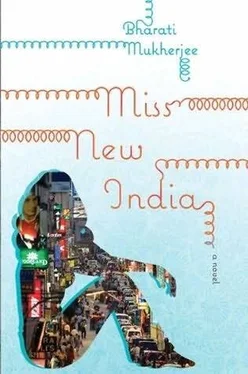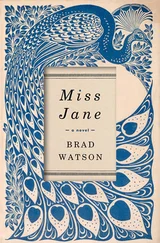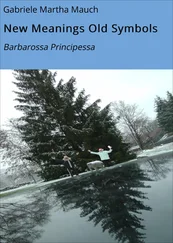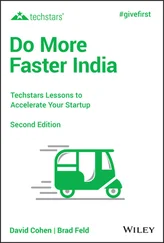Okay, she had an ally in Rabi Chatterjee's aunt. Good cop, bad cop?
Parvati's roller-ball pen hovered over boxes to be checked off on the form. "Do you consider yourself a logical thinker or a go-with-the-flow, roll-with-the-punches type?"
She hadn't read a single novel since graduating from high school. "People person," she admitted. Not that she wasn't a reader, but what she pored over were fanzines about Bollywood hunks. She was a movie groupie, not a bookworm. Ask me about Shah Rukh Khan or Akshay Kumar, go on , she silently challenged the two middle-aged women.
"How about logic versus intuition?" Usha asked.
"I'm a very logical person." Anjali craned her neck to read the upside-down words listed on Parvati's form: perfectionist; pliant; cautious; argumentative; compromiser; team worker; leader; secretive; loyal; competitive; manipulative; tough negotiator; diplomatic; impulsive; stubborn; plodder; methodical; serious; solemn; critical; fun loving; fun to be with.
She had wants, she had longings and terrifying yearnings, oh, she had so, so many passions and obsessions, but none was named on Parvati Banerji's official interview form! You're failing! Suddenly a dam gave way inside her. "Do you want an honest answer? You want to know why I left Gauripur?"
"I'm told it's the best policy," Usha said evenly.
Instead of the pithy, sanitized answers she had prepared for likely questions, she heard herself offering these composed and cosmopolitan career women crazy fragments of Gauripur life, which made up the story of her own half-formed life. She unburdened on them Sonali's bitter compromises, Nirmal's fatal humiliations, Peter's hazardous generosity to her and his pained love for a young man (oh, my God, I've exposed him), her father's fatal despair, the criminal selected for her to marry: the injustice, the indignity, the powerlessness. Her happiest memory was walking in Gauripur with Rabi.
"What can you know of people like Sonali and me and Nirmal? I had to get out before I died like Nirmal. You ask me what motivated me to come to Bangalore. I didn't have a life in Gauripur, like Peter has. I had to go. I am here to dictate the terms of my happiness."
"Well, I'm glad Peter is dictating his," Usha remarked. She handed Anjali a tissue from a packet in the pocket of her kameez.
It was only then that Anjali felt tears welling. She panicked. "I didn't mean to expose him." There was no taking back the confidences she had unleashed. Then, defensively, she explained, "I'm not the only one who knows. Rabi took some pictures. He described Ali as the most beautiful woman in Gauripur."
"We don't find anything wrong with it." Parvati put Anjali's dossier back in the pile. "Are you feeling better after that emotional detour?"
"My advice, whether you want it or not, is this: don't launch into a self-indulgent screed during an interview." Usha extracted a sheet from a loose-leaf binder.
Screed: the day's new word. "I'm terribly sorry," Anjali said. "I don't know why all that gushed out of me. It just happened. I don't mean to make excuses for doing badly."
Usha handed the sheet to her. It was a photocopy of the poem "The Raven." "Do you know what the title refers to, Angie?"
What a relief! "A ray-venn?" she asked. "A large black bird with a big white beak? Like a kite, or a crow?" She was back in Peter's apartment, the pencil in Peter's hand punctuating each word. Again, again, no, again. Without being asked, she began to read the sheet. The "weak and weary," the "quoth the raven," the "never-more" all presented themselves fully formed, natural, without a pause.
"Peter prepared you very well."
Did that mean she was too advanced for the CCI program? "I still need training, madam."
"Well, thank you for coming in this afternoon." Parvati signaled that the interview was at an end.
"We'll call you. And please convey our good wishes to Mrs. Bagehot."
On cue Kamini came out of the kitchen to show Anjali out. In the hallway, Anjali thought she overheard a soft laugh and something like the words "Well, definitely not your cookie-cutter…"
On the auto-rickshaw ride back from Indira Nagar to Kew Gardens, Anjali went over and over the questions the CCI partners had put to her, how stupidly she had answered them, and how she should have responded. Husseina's prepping hadn't seen her through the actual interview. She was anxious to describe her experience to Tookie and get her feedback before Tookie left for her pre-work-shift bar-hopping ritual.
When she got back to Bagehot House, she changed into her own clothes before knocking on the barely open door to Tookie's room. All three of her fellow boarders were there, giggling and whooping about a column in Voice of the South, which was spread out on Tookie's bed. Sunita had found the paper on the top of the credenza in the breakfast alcove.
"Hey, girlfriend!" Tookie high-fived her. "Take an eyeful of this! That Dynamo dude's got it right! Totally nailed us!"
Even Sunita managed an air-high-five and made room for Anjali on the bed so she could read Dynamo's column.
THE NEW MISS INDIA
By Dynamo
Dynamo this week is smitten. Congratulations to the New Miss India, Aziza Habib, selected last week in Goa by a panel of Bollywood heavyweights and at least one befuddled Hollywood B-lister, as the next Aishwarya Rai, self-evidently the most beautiful woman in the world. (By national consensus, any Miss India automatically doubles as the world Number One). Once again, the time-tested standard of Indian beauty has been upheld: simpering, doe-eyed, classically trained dancers in traditional attire (until they strip down to Western evening gowns and spike heels) in front of dozens of slobbering producers with checkbooks and film scripts at the ready.
My question: Which of these lovely ladies is more in touch with the soul of modern India?
Every week, Bang-a-lot (or maybe I should call it Bang-amour) receives (not "welcomes") several thousand young women from every part of this great country. They arrive by plane, by train, even by intercity bus. They come from the great cities and the mofussil towns. From Lucknow and Varodara; from Gauripur and Dhanbad. They represent all religions, all languages. They come bearing school-leaving certificates, letters of reference from old teachers, but most important, bearing hope and energy that is infectious. They don't simper, they don't dance (don't ask them!), and they don't wear saris or evening gowns. They stride in comfortable salwars or in blue jeans, and Bang-amour had better get used to it and be grateful for them. Our torpid institutions-like Bollywood standards of compliance-will try to beat them down, but that train has already left the station.
While the moguls of Mumbai thrust their retro beauties in our faces, these call-center hopefuls manage to attract a smaller but more discriminating cadre of admirers. Bollywood has no use for India's women, apart from ornamentation. Far from Bollywood being India's international calling card, it cynically holds its "heroines" and their vast male audiences in a stage of infantilism that should cause us great international shame.
Anjali read it through twice before Husseina grabbed the paper from her. Mr. GG had sneaked Gauripur into his column because he had fallen head over heels for her. Husseina said, "This guy must be dating a customer-service agent."
"You mean he's having sex with one?" Tookie grinned.
Anjali wasn't ready to let them in on Dynamo's identity-it was her special secret. She snatched the paper back from Husseina and read the column out loud, enunciating each syllable as self-consciously as she used to in dialogue drills in Peter Champion's advanced conversational skills class. How could her friends miss the obvious fact that Dynamo, aka Mr. GG, had penned a love letter to her, and to her alone? "He says he is smitten," she protested. "Smitten, that's how he describes what he is feeling. Smitten 's a chivalrous word!"
Читать дальше












